Report: Nearly 100% of the Top 40 Worship Songs over Last Decade Come from 4 Megachurches

According to a new report by Worship Leader Research, a mere four megachurches were responsible for producing and releasing nearly all the top worship songs released in the last decade, offering a deep insight into why not only all the songs sound alike, but why their theology is frequently so squishy, vapid, and unbiblical.
WLR recounts how “From 2010-2020, 38 worship songs appeared on the CCLI and PraiseCharts Top 25 list. 37 of them were co-written or popularized by a mere 5 megachurches” and offers this commentary:
If you have ever felt like most worship music sounds the same, it may be because the worship music you are most likely to hear in many churches is written by just a handful of songwriters from a handful of churches.
As part of our group’s analysis of contemporary worship music output (for details on our study’s methodology, click here), we delved deeply into the most popular worship songs released between 2010 and 2020. We cross-referenced two main sets of data: the ever-popular CCLI lists – viewed much like the “Billboard charts of church music” – and the Praise Charts top songs lists, where churches might purchase chord charts and arrangements.
After cross-referencing the Top 100 lists from each, we found that there were only 114 songs associated with just 43 discrete songwriters or churches. …
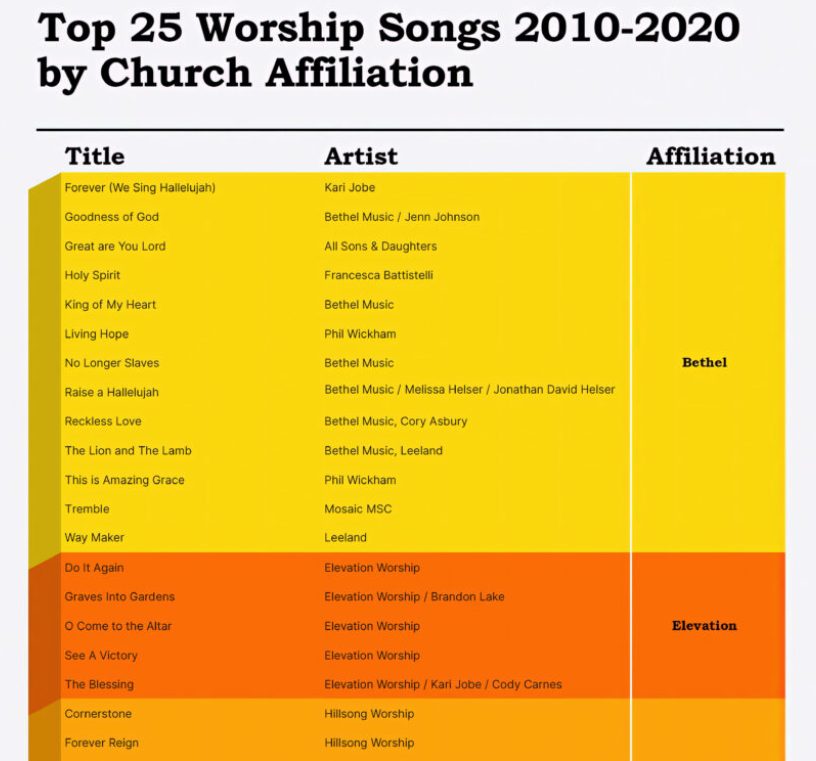
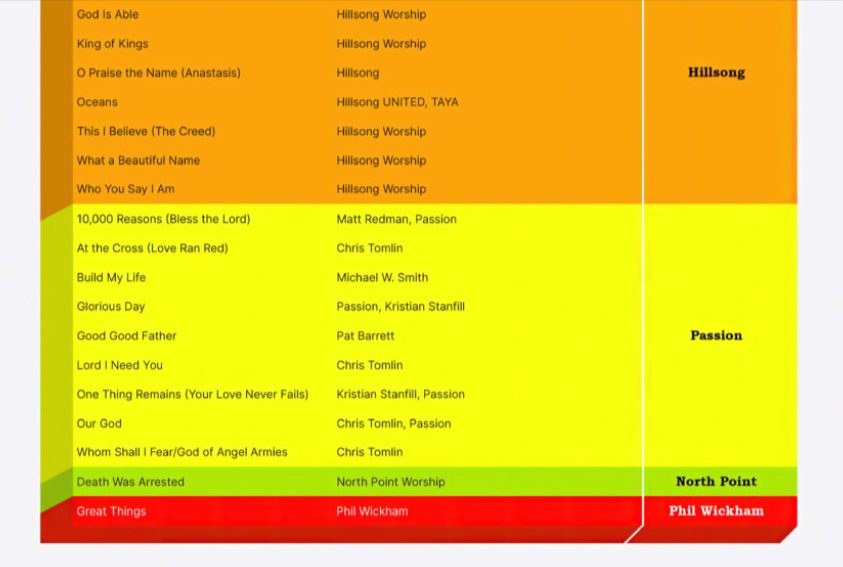
In order to correlate the greatest possible amount of data and create the most accurate picture of what it feels like to sing songs in churches, we narrowed our lists to focus on the Top 25.
When we did, we found there to be a mere 38 songs. That’s right, in a decade, only 38 titles were among the Top 25 songs sung in churches. Even on the surface, most of these songs are directly traceable to four church groups (Bethel, Hillsong, Elevation, and Passion) and a handful of other artists.
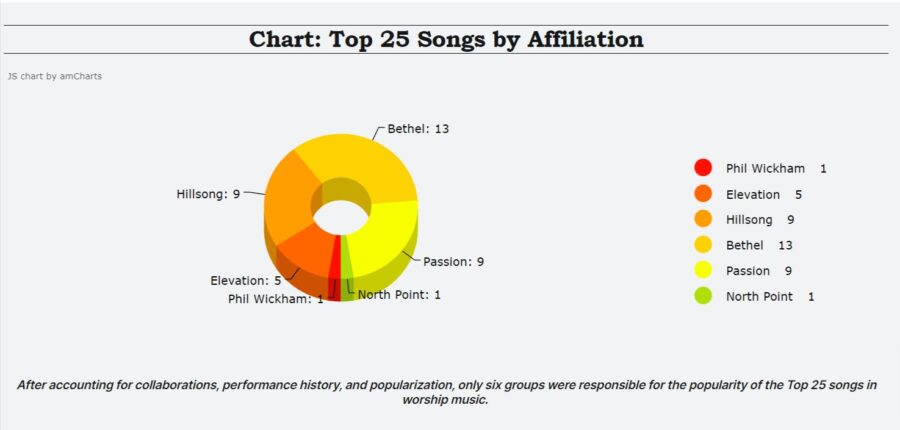
With exposure and mass adoption of music come monetary benefits. We reported recently how Elevation Night tickets are going for huge sums of money, with some venues telling two tickets in premium seating for as high as $2480.30. Similarly, Hillsong worship leaders and pastors are raking in the dough, with reports of salaries and royalties as high as $1,900,000.00 a year, not including tour bonuses or other honorariums. This all the while exposing Christians to the theology of these organizations and the teaching of the pastors, which in some cases, is rank heresy.
h/t Bob Smietana at RNS


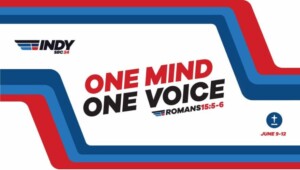

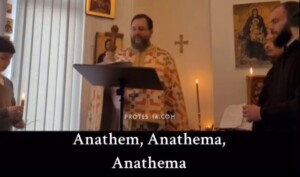


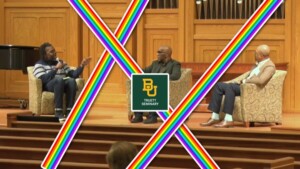
Well that explains the nauseating experience I have every Sunday during the song segments.
On many occasions, I have to stop singing because of the poor theology and man-centred lyrics. Even some precious old hymns have been butchered and modernised by some of these artists, and that is a tragedy.
Very moving
Churches that hold to the biblical practice of exclusive psalmody (which has been the practice not only of the New Testament church for 2,000 years, but the Old Testament church long before) don’t have this problem and never will. Hymnody may be the popular position practiced by almost all churches today, but history demonstrates psalmody as being in the majority.
It is depressing to see some of those titles sung in our church. Fortunately, our church is producing a lot of its own music – some of it decent, but there is still far too much that focuses on us and not enough on Our Savior.
I’m probably just getting old, but I don’t find reverence for God Almighty in most rock-style worship songs.
Fundamentalists have been saying contemporary music, mostly, comes out of the charismatic churches—for decades.